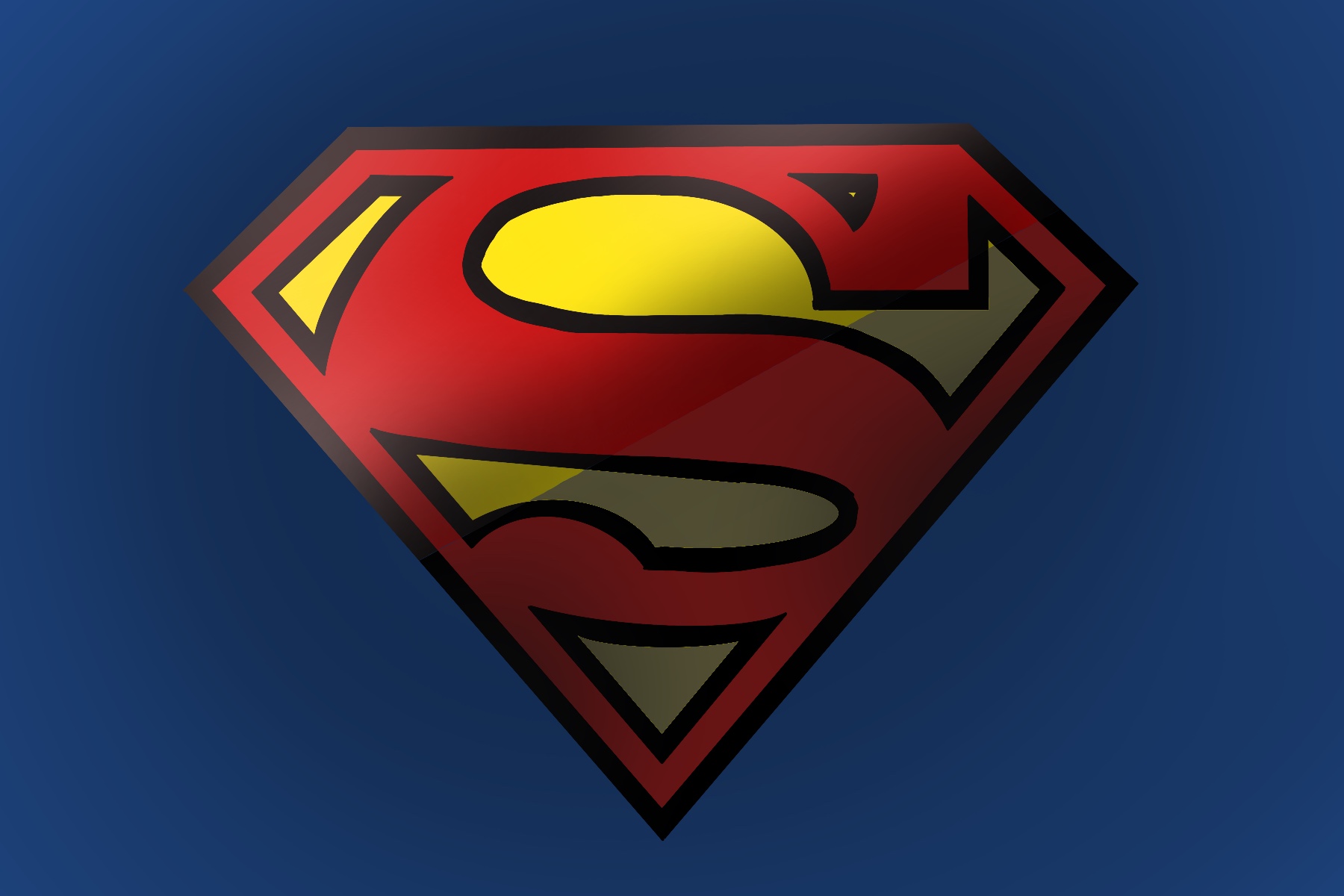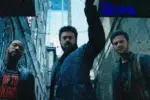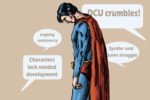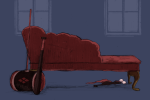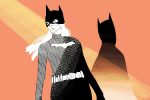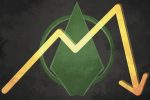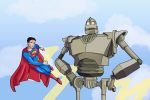Amazon recently released a new original series called “The Boys,” a show where superheroes are depicted as morally corrupt celebrities who happily abuse their power. Of all the heroes, however, none are more twisted than Homelander, leader of the superhero team known as the Seven. While Homelander is obviously heavily inspired by Superman, possessing many of the same powers as well as a similarly charming demeanor, the parallels between the two characters end there. Behind his public persona of a justice-seeking, patriotic and morally righteous hero, Homelander is in truth a psychopathic monster who thoroughly enjoys hurting and dominating others. Despite appearing to be the perfect hero, he is in truth the worst of villains.
Homelander seems to be only the latest iteration of a trend that has gradually grown more distinct within popular culture: that of the powerful hero suddenly becoming the villain. This trend arguably started with Superman himself, whom within the DC Extended Universe was given a darker interpretation.
The first of the DCEU movies, “Man of Steel,” depicts a young and inexperienced Superman who, though wishing to do good, still acts with a certain amount of callousness. He destroys a logger’s truck in a fit of rage, for example, and also trashes an expensive military drone that tries to follow him back to the Fortress of Solitude.
Indeed, one of the biggest complaints about “Man of Steel” is how much collateral damage Superman causes, particularly in his battles with General Zod and his forces. The hero who is supposed to be the protector of humanity never seems to consider trying to lead his foes away from more populated areas, instead engaging in superpowered fights that lay waste to Smallville and obliterate huge chunks of an already devastated Metropolis.
What is interesting is that in “Batman v. Superman: Dawn of Justice,” Superman seems to realize his past mistakes and attempts to atone for them. Despite Batman’s nightmarish vision of a tyrannical Superman, the real Superman displays far more noble behavior, helping people in need all across the world while patiently dealing with the public’s growing mistrust.
If the collateral damage of “Man of Steel” was caused by a careless young Superman, “Batman v. Superman” seems to depict a more mature Superman who is willing to answer for any wrongs he has caused. Although he is not perfect, he is still far from evil.
Ironically, it is in the supposedly more lighthearted “Justice League” that Superman finally turns to the dark side, at least temporarily. When the titular superhero team brings the all-powerful alien back to life, the formerly penitent hero briefly loses his mind, becoming a merciless psychopath. This is easily the most disturbing and suspenseful part of the film, as even the entire Justice League seems helpless to contain the superpowered monster they have unwittingly unleashed on the world.
Of course, everything turns out fine in the end: Superman soon regains his mind after reuniting with Lois Lane, he helps the Justice League save the day and all is right with the world. But for one terrifying instant, it was abundantly clear that the heroes had created something even worse than the evil they were trying to fight.
The idea of a truly villainous Superman was soon explored further in “Brightburn,” director David Yarovesky’s dark satire of the traditional Superman origin story. Much like Superman, young Brandon Breyer comes to Earth as a baby in a mysterious alien shuttle that crash-lands on a small farm. There, he is adopted by Tori and Kyle Breyer, who raise him as their own son.
However, the strange shuttle soon begins to transmit an alien message that not only reveals Brandon’s incredible power but corrupts his mind. He begins to act out, his actions escalating from simply defying his parents to maiming and killing others without mercy. Whereas Superman was sent to Earth to guide it to a better tomorrow, Brandon’s malevolent progenitors send him as a conqueror, a destined tyrant whose motto is “take the world.”
The true horror of “Brightburn” thus comes from the realization of how easily a savior figure like Superman could turn out to be the Antichrist. Certainly, when the multitudes place their faith in one individual, there is ever the danger that this hero of the people could turn out to be a villain in disguise, one who cleverly manipulates the masses while using his power for his own nefarious purposes.
This brings us back to Homelander, who in many ways is the evil Superman fully realized. Homelander uses his status as the world’s most powerful superhero to intimidate others into submission, including his fellow heroes. At the same time, he takes advantage of the public’s reverence for him to further the goals of Vought International, the corporation responsible for creating both him and the Seven.
https://www.instagram.com/p/B1meILfnWuO/
Perhaps nowhere is Homelander’s status as a demagogue clearer than during his fiery speech at the “Believe Expo,” a Christian convention sponsored by Vought. Declaring himself to be “chosen by God,” Homelander boldly demands that the government allow the military to employ superheroes, claiming that he and the other heroes were given their powers by God so that they could protect America from its enemies. Disturbingly enough, the masses seem to believe him; the crowd begins to chant his name, obviously seeing the glamorous psychopath as some sort of savior to their country.
Homelander is made yet more terrifying by the fact that the authorities are too afraid to go after him due to the danger of invoking his wrath. When dark secrets about Vought and its heroes are uncovered, it is decided that charges should not be pressed against Homelander for fear that he will go on a rampage, leading to the deaths of thousands. Homelander’s power is great enough to intimidate even the government of the most powerful country on Earth. If he were ever to decide to take power for himself, there would be little that normal humans — or even other superheroes — could do to stop him.
The trend of the powerful heroes becoming villains has also recently manifested itself in other superhero media. For example, the recently released final season of “Legion” involves the godlike mutant David Haller going rogue, wielding his incredible psychic power as a weapon against his former friends while simultaneously attempting to use time travel to undo his past mistakes, threatening the entirety of existence in the process.
This trend may not even be limited to superheroes. In the final season of “Game of Thrones,” for instance, Daenerys Targaryen, once a beloved leader and a champion of the poor and the disenfranchised, suddenly goes mad with power like so many of her family before her. After the besieged Kings Landing surrenders to her armies, Daenerys burns the entire city to the ground with her dragon, killing thousands in the process.
What is interesting is that much like Superman, both Daenerys and Haller were savior figures before their power finally corrupted them. Haller was considered to be the “greatest hope” for the mutant race, being powerful enough to permanently free all mutants from human oppression. Daenerys was going to be the one to “break the wheel,” ending the destructive battles for power that had forever plagued Westeros.
Like Superman in “Man of Steel,” both made mistakes, but the hope that others placed in them was enough that they, along with their allies, seem to have been made blind to their own inner darkness. Thus, when that darkness finally began to reveal itself to those around them, it was already too late.
Ultimately, the trend of heroes becoming villains seems to stem from an instinctive fear of those with great power. There is, of course, the unfortunate reality that even those powerful individuals with the best of intentions can still make mistakes; yet even more dangerous is when our heroes become certain of their own goodness, to the point where they can justify every action. Still more deadly are those like Homelander, who have little use for goodness except as tool to hide their true villainous nature.
In an increasingly chaotic world, our society’s newfound interest in superheroes might be said to reflect a deeper wish for some exceptional individuals to take the lead. But with this wish comes the corresponding and all too rational fear that these individuals could be fallible, corruptible — in short, villains.


